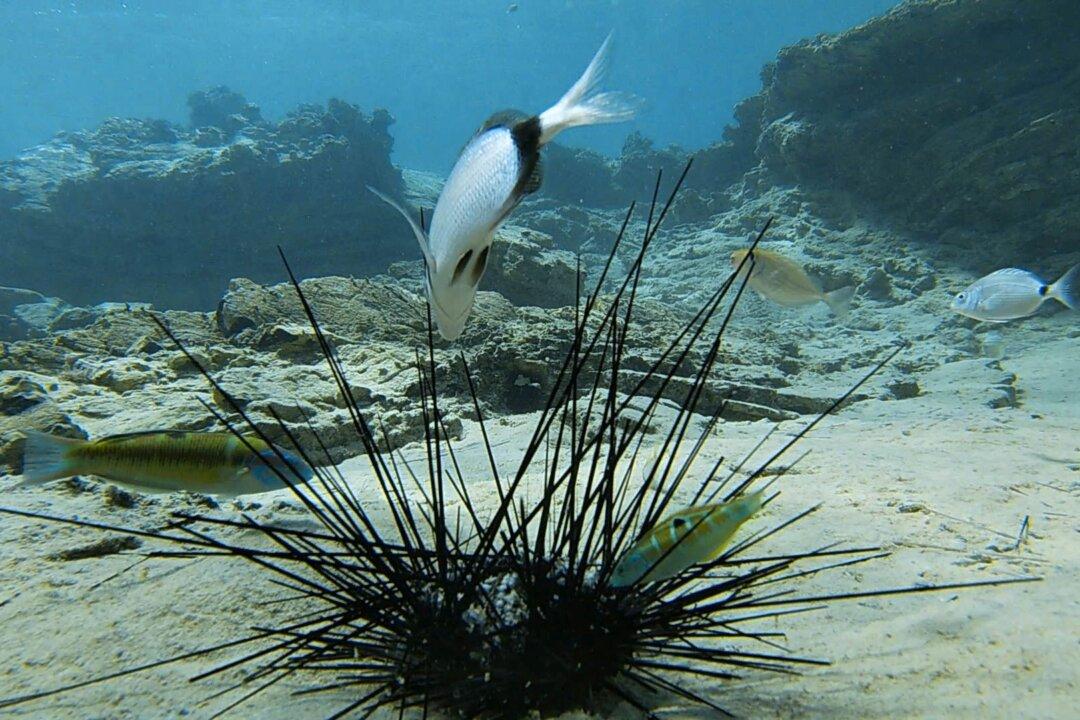The black sea urchin in both the Mediterranean Sea and the Gulf of Eilat in Southern Israel faces a deadly epidemic, according to a series of new studies.
Thousands of sea urchins living in a site near the northern shore of the Gulf of Eilat died out over the course of a few weeks. The entire population of black sea urchins in Eilat was wiped out over a couple of months.





